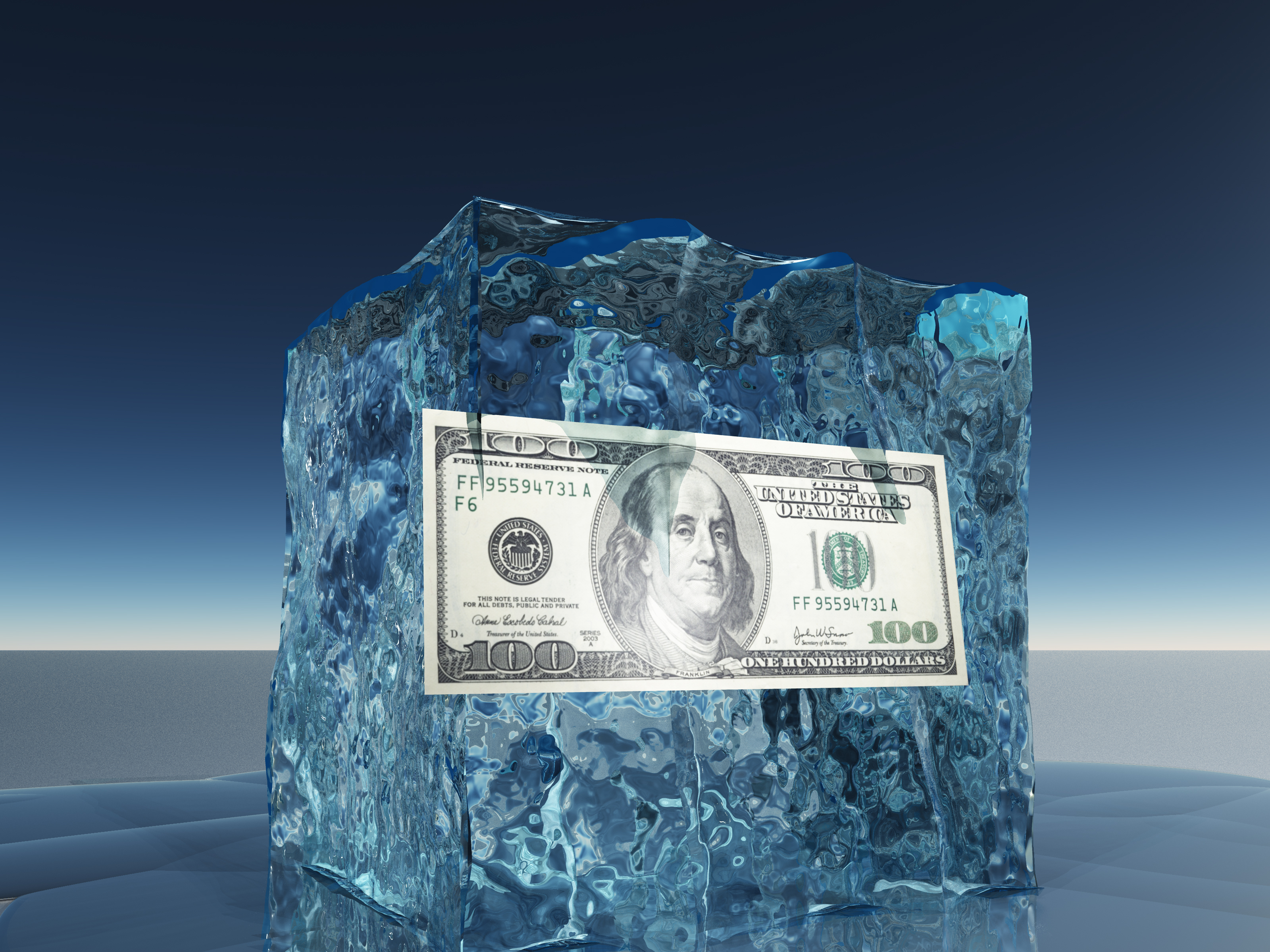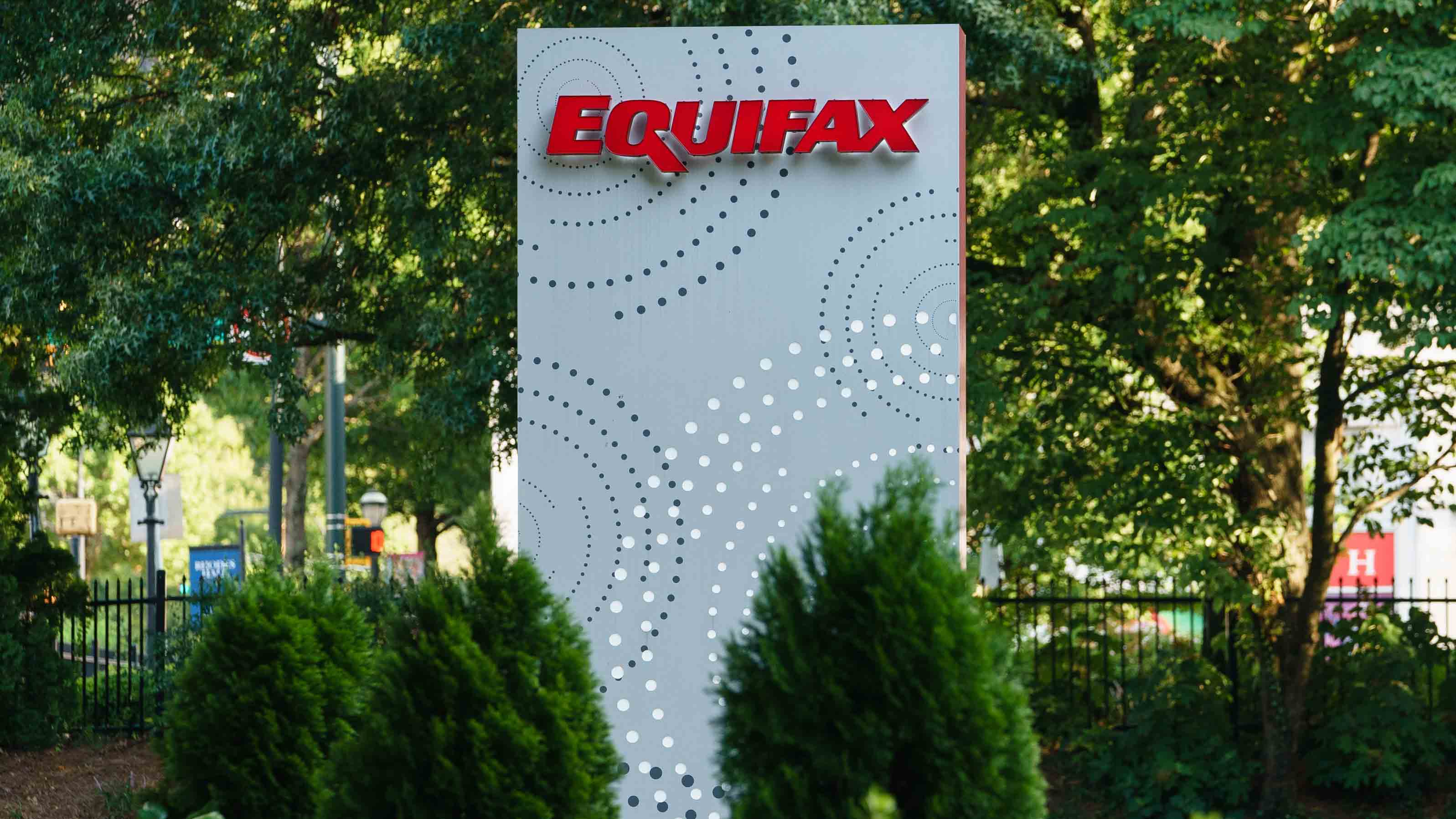You Can Now Freeze -- and Unfreeze -- Your Credit Report for Free
As of September 21, credit bureaus can no longer charge you to freeze your credit reports or to lift a freeze. Here’s what you need to know to get your free freeze.


Profit and prosper with the best of Kiplinger's advice on investing, taxes, retirement, personal finance and much more. Delivered daily. Enter your email in the box and click Sign Me Up.
You are now subscribed
Your newsletter sign-up was successful
Want to add more newsletters?

Delivered daily
Kiplinger Today
Profit and prosper with the best of Kiplinger's advice on investing, taxes, retirement, personal finance and much more delivered daily. Smart money moves start here.

Sent five days a week
Kiplinger A Step Ahead
Get practical help to make better financial decisions in your everyday life, from spending to savings on top deals.

Delivered daily
Kiplinger Closing Bell
Get today's biggest financial and investing headlines delivered to your inbox every day the U.S. stock market is open.

Sent twice a week
Kiplinger Adviser Intel
Financial pros across the country share best practices and fresh tactics to preserve and grow your wealth.

Delivered weekly
Kiplinger Tax Tips
Trim your federal and state tax bills with practical tax-planning and tax-cutting strategies.

Sent twice a week
Kiplinger Retirement Tips
Your twice-a-week guide to planning and enjoying a financially secure and richly rewarding retirement

Sent bimonthly.
Kiplinger Adviser Angle
Insights for advisers, wealth managers and other financial professionals.

Sent twice a week
Kiplinger Investing Weekly
Your twice-a-week roundup of promising stocks, funds, companies and industries you should consider, ones you should avoid, and why.

Sent weekly for six weeks
Kiplinger Invest for Retirement
Your step-by-step six-part series on how to invest for retirement, from devising a successful strategy to exactly which investments to choose.
Question: I remember reading a while back that everyone starting this fall will be able to freeze their credit report for free. Is this change effective now, and what do I need to do to get my free freeze?
Answer: The law providing free credit freezes took effect on September 21. The three big credit bureaus—Equifax, Experian and TransUnion—can no longer charge a fee to place or lift a credit freeze. In the past, the cost to freeze your credit report varied by state. Some states required free credit freezes for their residents, but others let the credit bureaus charge $5 to $10 every time someone wanted to freeze their credit record or lift the freeze (when applying for a loan, for instance).
A credit freeze prevents new creditors from reviewing your credit report, making it harder for identity thieves to take out credit in your name. For it to be effective, you’ll need to contact each of the credit bureaus separately to initiate a freeze. To see what steps you need to take, go to the Equifax freeze page, the Experian freeze page and the TransUnion freeze page.
From just $107.88 $24.99 for Kiplinger Personal Finance
Become a smarter, better informed investor. Subscribe from just $107.88 $24.99, plus get up to 4 Special Issues

Sign up for Kiplinger’s Free Newsletters
Profit and prosper with the best of expert advice on investing, taxes, retirement, personal finance and more - straight to your e-mail.
Profit and prosper with the best of expert advice - straight to your e-mail.
Once you request a freeze either online or by phone, the new law requires the credit bureaus to implement it within one day. And if you ask for the freeze to be lifted, the credit bureaus have one hour to do it. “That is the law’s maximum time, but for most people setting the freeze online or by phone, it will be pretty close to instantaneous,” says Francis Creighton, the president of the Consumer Data Industry Association, a trade organization for credit bureaus and other consumer reporting agencies.
Some states have additional consumer protections. In Utah, for example, the credit bureaus must initiate or lift the freeze within 15 minutes of the request for a freeze on a mobile app, says Rep. Jim Dunnigan, who sponsored the credit freeze legislation in the Utah House of Representatives (Utah’s law took effect in May). You can find out about additional consumer protections in your state from its division of consumer protection or the state attorney general’s office.
The freeze remains in effect until you take steps to remove it—either temporarily or permanently. “Understanding the correct terminology is important,” says Eva Velasquez, CEO and president of the Identity Theft Resource Center. “A thaw (or unfreezing) of one’s credit allows them to temporarily remove the freeze for a specified period of time. For example, if a consumer knows they will be applying for credit, they can request a thaw for a day, or a week or another specified time period. And after that time period has elapsed, the credit will freeze again—no additional action is necessary on the part of the consumer.” Lifting a credit freeze, on the other hand, removes the freeze until the consumer actively requests the freeze from the credit bureau again. It’s free whether you lift or thaw a freeze.
The new law also lengthens the duration of a fraud alert that you can place on your credit file from 90 days to one year. A fraud alert signals to businesses that you may have been a victim of identity theft and that they should verify your identity before opening any new accounts. You need only place a fraud alert with one credit bureau, which will notify the others.
For more information about protecting yourself against identity theft, see The Equifax Data Breach: What You Should Do. Also see the Identity Theft Resource Center’s How to Place a Credit Freeze guide.
Profit and prosper with the best of Kiplinger's advice on investing, taxes, retirement, personal finance and much more. Delivered daily. Enter your email in the box and click Sign Me Up.

As the "Ask Kim" columnist for Kiplinger's Personal Finance, Lankford receives hundreds of personal finance questions from readers every month. She is the author of Rescue Your Financial Life (McGraw-Hill, 2003), The Insurance Maze: How You Can Save Money on Insurance -- and Still Get the Coverage You Need (Kaplan, 2006), Kiplinger's Ask Kim for Money Smart Solutions (Kaplan, 2007) and The Kiplinger/BBB Personal Finance Guide for Military Families. She is frequently featured as a financial expert on television and radio, including NBC's Today Show, CNN, CNBC and National Public Radio.
-
 Dow Adds 1,206 Points to Top 50,000: Stock Market Today
Dow Adds 1,206 Points to Top 50,000: Stock Market TodayThe S&P 500 and Nasdaq also had strong finishes to a volatile week, with beaten-down tech stocks outperforming.
-
 Ask the Tax Editor: Federal Income Tax Deductions
Ask the Tax Editor: Federal Income Tax DeductionsAsk the Editor In this week's Ask the Editor Q&A, Joy Taylor answers questions on federal income tax deductions
-
 States With No-Fault Car Insurance Laws (and How No-Fault Car Insurance Works)
States With No-Fault Car Insurance Laws (and How No-Fault Car Insurance Works)A breakdown of the confusing rules around no-fault car insurance in every state where it exists.
-
 TransUnion Fined $23M For Tenant Screening, Credit Freezes
TransUnion Fined $23M For Tenant Screening, Credit FreezesGovernment charges TransUnion over illegal rental background checks and security freezes on consumer credit reports.
-
 Credit Cards vs Charge Cards: What Are the Differences?
Credit Cards vs Charge Cards: What Are the Differences?All you need to know about credit cards vs charge cards — differences, pros and cons.
-
 How Many Credit Cards Should I Have?
How Many Credit Cards Should I Have?How many credit cards should you have? The answer isn’t as straightforward as you might think — it all depends on your financial situation.
-
 Credit card delinquency expected to increase in 2023
Credit card delinquency expected to increase in 2023Credit card and personal loan delinquency rates are expected to increase this year.
-
 What Is a Good Credit Score?
What Is a Good Credit Score?Having a good credit score can save you hundreds, even thousands of dollars on credit cards, mortgages and other loans.
-
 Best Credit Cards for Bad Credit 2023
Best Credit Cards for Bad Credit 2023If used wisely, these credit cards can help you dig out of bad credit; you may even earn 2% cash back.
-
 How to Freeze Your Credit in Three Steps
How to Freeze Your Credit in Three Stepscredit & debt Freezing your accounts at the three major credit bureaus is the best way to prevent thieves from opening new credit accounts in your name.
-
 Did Equifax Botch Your Credit Score?
Did Equifax Botch Your Credit Score?credit score Equifax is in the news–yet again–this time for sending lenders the wrong credit score. Here’s how to find out if you were affected and what to do next.